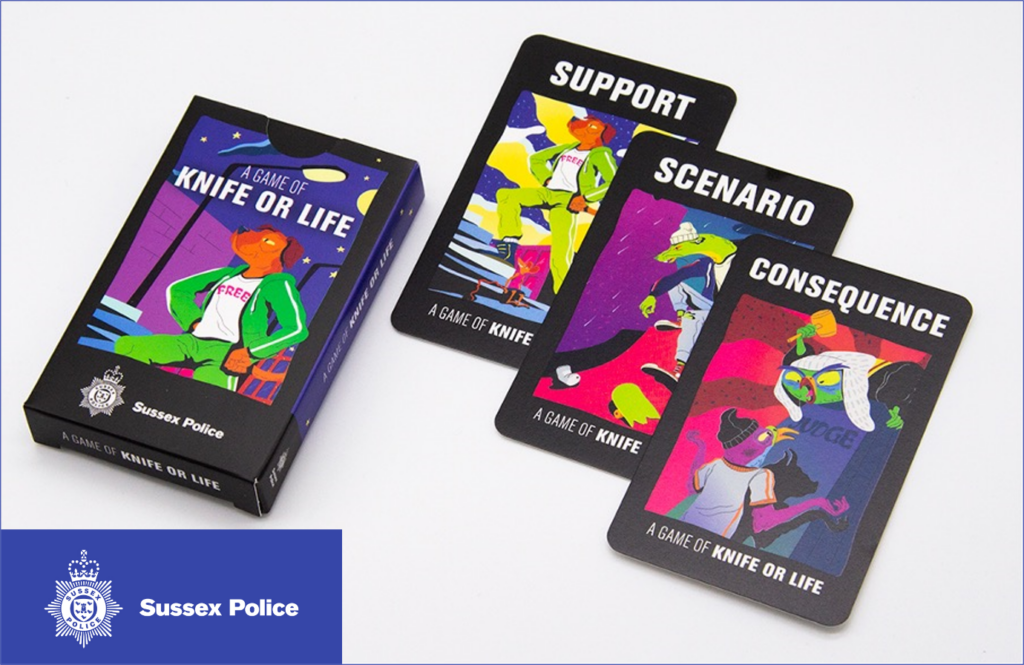Sussex Police
Autumn to Winter 2019

The challenge
Knife crime was on the rise in Sussex, reflecting a trend across the UK. This had gained increasing attention in the news and was a major issue in the Sussex area, especially among males in their late teens.
Police and partners knew that they often only heard about the most extreme cases. With evidence from elsewhere suggesting widespread fear about knife crime among 11-18 year-olds, they wanted to address the underlying factors. As part of a Home Office funded workstream, we were commissioned by Sussex Police to provide the first ever piece of county-wide research into knife crime in Sussex.
What we did
Our research involved a survey of 944 young people, as well as four focus groups in schools. We also did depth interviews with Prevention Youth Officers, youth workers and other key stakeholders. To counter reluctance which we came up against when circulating the survey in schools, we developed a set of supporting materials, including signposting to victim support services. Uptake was high, and our qualitative research in particular enabled us to gather more in-depth data from seldom-heard groups, including those who habitually carry knives.
Our approach also included a version of Values Modes tailored to younger people. And we used external data to supplement this, focusing on the effects of social networks and on the role of authority figures.
What happened
Our final report identified the key factors that lead individuals into habitual knife carrying. On this basis we developed a set of recommendations, including campaign a strategy for upcoming ‘Operation Sceptre’ campaigns (the police’s anti-knife crime initiative). One direct action from the research was that social media campaigns avoided police branding, with one of our key findings being about the lack of trust in formal institutions.
The police subsequently built on this, and in particular on our recommendation that ‘gamification’ principles could help to change behaviour. They released the ‘Knife or Life’ card game (pictured above), which was designed with the support of youth officers and which was aimed at teenagers. The cards discreetly signpost to places where the young people can report knife-crime anonymously, and the initiative went on to win recognition at the Chartered Institute of Public Relations (CIPR) awards.












